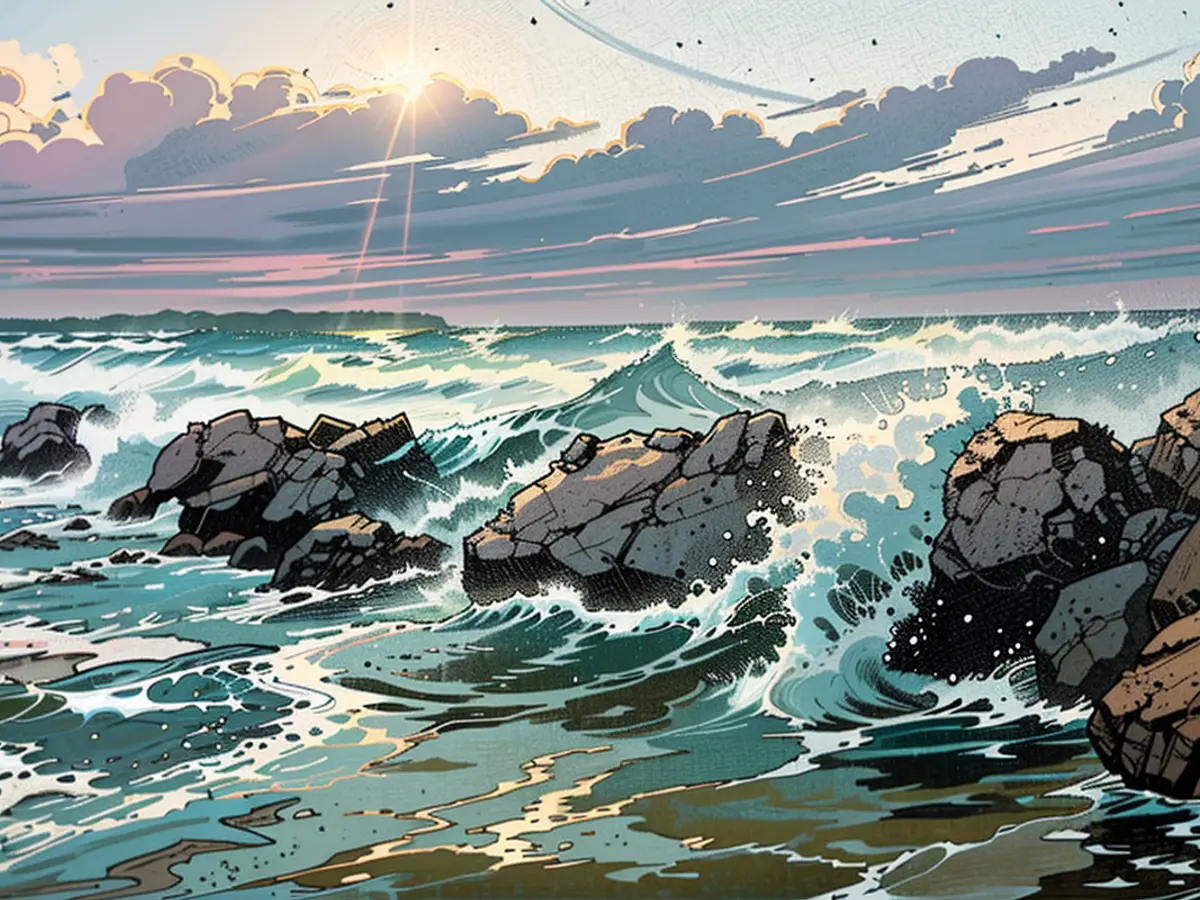Idadefies swimming against the mass of anger in her tummy.
In her novel "Wind Force 17," Caroline Wahl follows up on the success of her debut "22 Trains" with a story about the younger sister, Ida. After the heart-warming tale of Tilda and their dysfunctional family, the focus shifts to Ida and her guilt-filled journey to the island of Rügen.
The sisters Tilda and Ida captured readers' hearts with their struggles. With "Wind Force 17," Wahl continues their story, placing emphasis on Ida's transformation. The 2020 Booker Prize-shortlisted author hailing from Rostock wrote "22 Trains," which featured Tilda's perspective on a troubled family. This novel became a bestseller in Germany and gained much praise, and Ida's tale unfolds in the same Rostock-based context.
"22 Trains" brought readers into the lives of a dysfunctional family. The story's protagonist was Tilda, who took care of her alcoholic, unstable mother while also seeking freedom and embracing responsibility. When Tilda moved to Berlin for her postdoctoral position, Ida stayed with their mother who became more addicted. "Wind Force 17" now explores Ida's maturation, as she has aged and taken a new direction in her life. She is obsessed with writing, literature, and still loves vanilla pudding as well as bright clothing.
At the onset, Ida flees her childhood home lugging a navy-blue suitcase containing a few favorite items and her laptop. She was supposed to visit Tilda, who lived with her childhood lover and five-year-old twins as a mathematics instructor in Hamburg. However, Ida switches plans and gets off the train on Rügen, without knowing her reason for being there. The baggage of guilt weighs heavily on her.
Two months earlier, their mother committed suicide. Ida skipped the funeral, feeling inadequate for not having kept a closer eye on the mother she described so horribly. Despite lacking a formal relationship, she admitted, "I'm a bad and weak shit daughter. I was a bad and weak shit daughter, and now I'm just alone."
Upon arriving on Rügen, Ida encounters Knut, owner of the "Robbe" pub. When she collapses, Knut and his wife Marianne invite her for help. They provide her with a room, eucalyptus baths, morning toast, and a pink nightgown once worn by their daughter. Ida's daily schedule: swimming in the Baltic Sea, communing with her saviors, exploring the forest, visiting the market, cooking, and playing board games in the presence of Marianne. She also helps out in the "Robbe," often against her will.
By night, Ida experiences unsettling dreams about her now-deceased mother. The more she learns about her mother and childhood, the better she feels. This changes when Hannes reappears in her life. Wahl has further deepened Ida's character, now characterized by fierce independence, explosive anger, and a propensity for causing trouble. In contrast, Tilda appears level-headed and understanding.
Both books explore themes of water. For self-professed competitive swimmer Tilda, who practiced daily in the public pools, the element was calm and predictable. Ida, on the other hand, finds an unpredictable connection with the waves of the Baltic Sea. Ida dives into the brine while the wind howls and sea turns volatile. This swim is a method for her to face her internal rage and let go of her sense of guilt.
Beautiful as always, Wahl's writing is raw, honest, and humorous. The dialogue reveals her powerful storytelling; each utterance is precise, short, and direct. "The truth is too strong to bear. What am I saying? There's nothing around that's stronger than the truth. (...) Tilda says it's not that simple. I want to believe her. I need to believe her."
Does the book truly deserve a spot on the bestseller list? Absolutely, even if "22 Lanes" felt a little less convincing when it came to content and could have relied more on the shock factor. However, the author manages to win over a diverse range of readers, from young to old, with her well-chosen subjects and stylish delivery. And get ready for more: In several interviews, Wahl has hinted that she's working on her third book. It's set in Bavaria.
Read also:
Despite the success of "22 Trains" and its focus on Tilda's perspective, many readers were eager to delve into Ida's story.Set amidst the icy waters and picturesque landscapes of Rügen, reviews of "Wind Force 17" praise Wahl's exploration of Ida's mourning process following her mother's suicide in the Baltic Sea.








